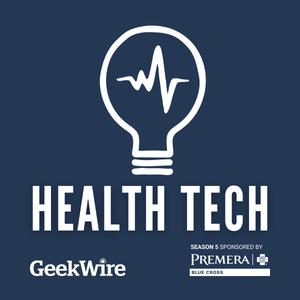
GeekWire Health Tech
GeekWire
Health Tech is a GeekWire podcast that explores the cutting edge of digital health. On each episode, we bring you stories about innovative technologies for patients, doctors and more, giving you a window into the future of health. Our fifth season is sponsored by Premera Blue Cross. Learn more about Premera here: https://www.premera.com/premera-voices/
- 48 minutes 38 secondsInside Seattle's life sciences boom
Five years ago, when Dr. Leslie Alexandre arrived in Seattle to lead the industry group Life Science Washington, she found a community in a mild state of shock.
"One of the real challenges was our ecosystem had tons of great research going on, and many wonderful companies, but I think our industry was a little bit in the doldrums in 2016, in part because Amgen had just completed moving out of Elliott Bay," she said. "It started in 2014. And when I arrived, it was just the last people."
Amgen was the giant that five years earlier acquired Seattle’s homegrown biotech standout Immunex, known for developing the Enbrel arthritis drug, still widely prescribed to this day. Immunex was based on a big waterfront campus, which today is home to Expedia Group’s global headquarters. But there had been hopes in the local community that Amgen would maintain and even expand its operations in the region after the Immunex acquisition.
"And having it move away was kind of, 'Oh my gosh, one more company, one more great company created here in Seattle, breathtaking research commercialization. And now it's gone," Alexandre said.
But that’s just the beginning of the story. On this episode of the GeekWire Health Tech Podcast, what happened next, and where the Seattle region’s life sciences industry stands today.
Our guest, Leslie Alexandre is the President and CEO at life science, Washington, an organization that aims to put Washington state at the forefront of global life science innovation, who recently announced her plans to retire at the end of the year. The organization is holding its annual Washington State Life Science Summit virtually this week, Thursday Oct. 21.
Dr. Alexandre received her Doctorate of Public Health from UCLA and has held leadership roles at startups, Fortune 500 companies, research institutions and non-profit organizations. She ran the North Carolina Biotechnology Center from 2002-2007.
Episode produced and edited by GeekWire co-founder Todd Bishop, with reporting and research by Charlotte Schubert, GeekWire health and life sciences reporter, who also joins us on this episode.
See omnystudio.com/listener for privacy information.
19 October 2021, 3:30 pm - 33 minutes 7 secondsTesting Amazon's COVID Test
Amazon made headlines at the height of the pandemic for developing its own COVID-19 testing system for its workers. The same test is now available to the public for $40. You can order the test on Amazon.com, take it at home and ship it to Amazon to get your results.
So what is it like to take Amazon’s COVID test? We decided to find out.
On this episode, GeekWire reporter Charlotte Schubert goes hands-on with Amazon’s COVID-19 test, adding to our understanding of the tech giant’s emerging health initiatives. We also hear from an expert in the field, Jerry Cangelosi, a University of Washington professor who has studied the effectiveness of these types of self-administered COVID-19 tests.
Read more in this GeekWire story.
Thanks to the sponsor of Health Tech Season 5, Premera Blue Cross.
See omnystudio.com/listener for privacy information.
4 August 2021, 2:09 pm - 31 minutes 16 secondsWhat it's like to use Amazon Pharmacy
Amazon's move into healthcare is multifaceted, including COVID-19 testing, its Halo health band and service, cloud services for healthcare and life sciences, and even primary care for its employees.
A major motivation for the company: the sheer size of the healthcare market, and the massive problems to be solved.
"Amazon is a big company now, still with big growth ambitions, and so they need to tackle big markets," said John Rossman, a former Amazon business leader and the author of The Amazon Way, speaking on a recent episode of GeekWire's Day 2 podcast. "Healthcare is going to become a bigger and bigger component of what their strategy is going to be, from every angle."
But one of the tech giant's healthcare initiatives seems especially well-positioned to benefit from Amazon's traditional e-commerce expertise: prescriptions by mail. The company launched its Amazon Pharmacy service in November 2020, building on its 2018 acquisition of prescription-by-mail company PillPack.
"Really, we wanted to make a pharmacy experience that was just as easy to use as Amazon generally," said TJ Parker, the PillPack CEO and vice president in charge of Amazon Pharmacy, and a former practicing pharmacist himself.
Amazon is competing against traditional pharmacies such as CVS, Walgreens and RiteAid, big retail rivals such as Walmart and Target, and healthcare technology companies such as GoodRx — whose chief financial officer, Karsten Voermann, sought to downplay the competitive threat from Amazon on a recent earnings call.
"Based on third-party data, they have not been successful," Voermann said of Amazon. "Mail order prescriptions only make up about 5% of fill count in the U.S. ... Third-party data indicates that Amazon Pharmacy is not gaining momentum and that their volume remains incredibly small."
But this is Amazon, a company with the resources and tenacity to pursue big challenges and opportunities for many years.
So what's it like to use Amazon Pharmacy?
To find out, GeekWire's Todd Bishop signed up to test the service on a routine prescription refill. Amazon Pharmacy impressed him with its convenience and privacy. But he also encountered obstacles, some due to kinks in the healthcare system outside of Amazon's control, that made the overall experience less than seamless.
On this episode of GeekWire's Health Tech Podcast, Todd talks with Amazon's TJ Parker to learn more about the Amazon Pharmacy, using his experience to inform the discussion.
See omnystudio.com/listener for privacy information.
24 June 2021, 7:31 pm - 21 minutes 41 secondsSon's rare disease inspires dad to disrupt drug development
Before their son was born, Sanath Kumar Ramesh and his wife Ramya had normal first-time-parent jitters. Ramesh, who works for Amazon as a software engineering manager, was so excited to welcome his little boy. He was ready for the challenges and rewards of parenthood.
In August 2018, Raghav was born, and Ramesh’s life began changing in ways he’d never expected.
On this episode of GeekWire's Health Tech Podcast, we’re reconnecting with Ramesh to hear more of his compelling, inspiring story. We previously reported on Ramesh and Raghav’s doctors and their efforts to treat Raghav. In this podcast we go deeper into Ramesh’s experience as both a father and a talented tech engineer working to help both his son and others struggling to save loved ones battling rare diseases.
See omnystudio.com/listener for privacy information.
12 May 2021, 7:07 pm - 27 minutes 4 secondsHow AI will accelerate the response to the next pandemic
The speed of the creation of vaccines for the SARS-CoV-2 virus that causes COVID-19 was a modern marvel. You might already have already gotten yours.
But what if vaccines and therapeutics could emerge even faster in response to the next pandemic. That’s one of the goals of a $5 million gift from Microsoft to the Institute for Protein Design at the University of Washington School of Medicine.
On this episode, we talk with Microsoft’s chief scientific officer, Eric Horvitz, and the director of the UW institute, David Baker, about the new age of artificial intelligence and biotechnology, and the potential to engineer a very different future.
See omnystudio.com/listener for privacy information.
31 March 2021, 5:32 pm - 33 minutes 53 secondsWalter Isaacson on the gene editing revolution
Walter Isaacson has studied and written extensively about the physics and technology revolutions as the biographer of such figures as Albert Einstein and Steve Jobs. But after writing his latest book, he is convinced there's a far more momentous revolution in the works.
"The next few decades are going to be the era of biotech," he said in a GeekWire podcast conversation about his new book, The Code Breaker: Jennifer Doudna, Gene Editing and the Future of the Human Race. "We'll be able to do totally amazing things that will not only make us healthier but in some ways will transform our species. So as much as I love the digital revolution, I think this is the big one."
The book explores the history and implications of gene editing through the stories of scientists and other key figures in the field. The central character is Jennifer Doudna, the UC Berkeley biochemist who won the Nobel Prize for Chemistry in 2020 with French geneticist Emmanuelle Charpentier for their discoveries and work in CRISPR gene editing.
Isaacson is a professor of history at Tulane who was previously CEO of The Aspen Institute, chair of CNN and editor of Time.
See omnystudio.com/listener for privacy information.
9 March 2021, 7:34 pm - 24 minutes 37 secondsFinding secrets of life in close brushes with death
To help people live, Mark Roth scrutinizes those who've come frighteningly close to dying. People who have been lost in the frozen wilderness in a Mount Rainier whiteout or stowed away in the wheel well of a trans-Pacific jet. People who have suffered massive heart attacks or body-crushing car wrecks.
Roth, a biochemist and cell biologist at Seattle's Fred Hutchinson Cancer Research Center, sees a thread connecting these catastrophes with something seemingly quite different: immortality. Both conditions "press pause" on life, he said. It's playing dead without being dead.
An entrepreneur and past winner of a MacArthur "Genius Grant," Roth built a career on making unlikely, unconventional, scientific connections. He shares the story of his extraordinary work on this episode of GeekWire’s Health Tech Podcast, reported and hosted by GeekWire reporter Lisa Stiffler.
See omnystudio.com/listener for privacy information.
4 March 2021, 4:25 pm - 34 minutes 17 secondsTesting a new COVID-19 test
GeekWire editor Todd Bishop: On a cold, clear weekday morning last month, my quest to figure out whether I had COVID-19 in the early days of the pandemic took me to my back porch, where a mobile phlebotomist drew my blood. It had been 10 months since I was sick, and I had already received a negative result on a standard antibody test.
That earlier test was designed to detect the presence of the antibodies produced by the body’s immune system to ward off the virus that causes COVID-19. The negative result meant I probably didn't have COVID back in March. But given the possibility of a false negative in the antibody test, I wasn’t giving up that easily. And this test was different.
This was a first-of-its kind diagnostic tool from Seattle-based Adaptive Biotechnologies, a company that develops technology to sequence the human immune system for the diagnosis and treatment of disease. T-cells are specialized cells that determine the human immune system’s response to disease.
Adaptive says tell-tale signs of T-cell responses to specific diseases can be detected earlier and longer than antibody responses, and with a higher degree of accuracy.
Adaptive Biotechnologies’ new test, called T-Detect COVID, was developed in partnership with Microsoft officially launched this week, under CLIA Clinical Laboratory Improvement Amendments federal regulations. The Food and Drug Administration is reviewing the T-Detect COVID test for Emergency Use Authorization (EUA). The test costs $150 plus lab fees.
On this episode of the GeekWire Health Tech Podcast, we’ll talk with Lance Baldo, Adaptive's chief medical officer, to learn exactly how this test works, and what it could mean for diagnosing and treating a wide range of diseases. And yes, I’ll finally learn almost definitely, whether I had COVID or not.
See omnystudio.com/listener for privacy information.
26 February 2021, 6:40 pm - 20 minutes 4 seconds'Data saves lives': U.S. health systems unite behind new startup
A group of 14 U.S. health systems, representing tens of millions of patients across 40 states, will pool data using software developed by Seattle startup Truveta, leveraging artificial intelligence to search for medical breakthroughs and previously undetected patterns of inequity in healthcare.
The company, led by former Microsoft Windows chief Terry Myerson, gave new details about its origins and plans Thursday morning, saying it has grown to 53 employees. Truveta emerged from stealth mode in October.
Created and governed by the participating health systems, Truveta says its goal is to extract insights from large amounts of health data, using those insights to improve healthcare without sacrificing the privacy of patients. The health systems will use software developed by Truveta to remove personally identifying information from the data. In addition, the company says it will be able to provide researchers with statistically representative populations for studies and clinical trials.
Appearing on this episode are Myerson, the Truveta CEO; and Dr. Rod Hochman, president and CEO of Providence, the Renton, Wash.-based health system where the initiative began.
See omnystudio.com/listener for privacy information.
11 February 2021, 2:09 pm - 30 minutes 31 secondsHalo Effect: Amazon, privacy, and the future of health
GeekWire editor Todd Bishop: A few weeks ago, I started wearing a new health band. It regularly eavesdrops on my side of conversations, and it has a lot of opinions about them.
“You had three phrases that sounded annoyed, irritated or disgusted," a section in the app reported on a recent evening, recapping my daily interactions. Not only that, but I had "one phrase that sounded stubborn or condescending.”
Another feature invites me to strip down to my underwear for a picture.
"Find a well-lit area and try to avoid light from behind," a voice from the app instructed me as it prepared to conduct a high-tech, 3D body scan. "Change into minimal clothing so the camera can see your body.”
Yes, as you might have guessed by now, this is the Amazon Halo band and subscription service, part of the tech giant’s big move into health and wellness.
Thanks to its revelations, I am now painfully aware of my tone of voice, and more empathetic toward my family and friends who have to put up with me. I've informed the Amazon team of a feature request from my wife, who would like to receive an emailed report on my tone of voice at the end of each day.
As for the body scan, let's just say this is one image that I won't be publishing with this story, and you're welcome.
You might have seen reviews of Halo. The Washington Post’s Geoffrey A. Fowler and Heather Kelly wrote that it “collects the most intimate information we’ve seen from a consumer health gadget — and makes the absolute least use of it.”
Based on my own experience, I agree with the first point, but not the second. Yes, Halo pushes the limits of my comfort zone at times. I have yet to get the motivation to take a second body scan after the first experience. But I have also started to rely on several of the features, including the in-depth sleep analysis and the tone assessment — two big areas where I personally have lots of room for improvement.
The band is comfortable to wear, and the programs in the app are useful. Just this week I boosted my time in deep sleep after doing a recommended progressive muscle relaxation exercise available in the Halo app before bed.
And despite concerns from U.S. Sen. Amy Klobuchar and others about the personal data Halo collects, I've found Amazon to be transparent about what it's doing, and clear in enabling me as the user to choose to participate, or not, in the more invasive aspects of the app. Yet Amazon could be doing even more to build trust.
On this episode of the GeekWire Health Tech Podcast, we explore the future of health — and test the limits of personal privacy — through Amazon’s new health band and service. We talk with the principal medical officer on the Amazon Halo team to get the inside details on what the company is doing, and we hear an outside assessment of Amazon’s privacy and security promises from an independent expert.
Episode edited and produced by Josh Kerns of Cypress Point Strategic Communications.
See omnystudio.com/listener for privacy information.
21 January 2021, 4:09 pm - 31 minutes 19 secondsCOVID-19: After the vaccine
To say that Dr. Brad Younggren has a unique perspective on COVID-19 would be an understatement -- because he actually has multiple perspectives.
Dr. Younggren is the chief medical officer at Seattle-based healthcare startup 98point6, which has seen interest in its on-demand virtual care service skyrocket amid the pandemic. He's also an emergency physician, and the medical director for emergency preparedness, at EvergreenHealth Medical Center, in Kirkland, Wash., the first hospital in the country to manage an influx of COVID-19 patients earlier this year.
And he has been on the front lines before, literally, as a former U.S. Army physician who earned a Bronze Star and the Combat Medic Badge for his service in Iraq.
So it was with a sense of hope and cautious optimism that he received his first dose of COVID-19 vaccine last week, along with his Evergreen colleagues.
"It's been an intense year, working through this massive growth at 98point6, and seeing how we can support the country at scale," he said. "Then the individual work, taking care of patients at Evergreen, has definitely been tasking at times. It's been an emotional experience just to see the light at the end of the tunnel — that sense of hope that comes from interval change in how we're managing this pandemic."
With cases surging in the U.S., Younggren and his colleagues are careful to note that we're not out of the woods yet. But even when the world can put the pandemic into the history books, COVID-19's impact on the science and technology of healthcare will endure.
He drew parallels between his time serving in the military and the past year in the pandemic, in terms of its impact on people working in healthcare.
There's a "battle rhythm you develop, because you're basically on all the time, and there's a level of fatigue that comes from that kind of work," he said. "We're seeing a lot written about the impact of COVID-19 on the healthcare worker, and not just the physicians, the nurses and the janitors and the people who are cleaning the rooms. It's impacting the entire healthcare system. These are very stressful times from that perspective."
Younggren reflects on the past year, and talks about what's next, on this episode of GeekWire's Health Tech Podcast.
See omnystudio.com/listener for privacy information.
29 December 2020, 11:00 pm - More Episodes? Get the App
Your feedback is valuable to us. Should you encounter any bugs, glitches, lack of functionality or other problems, please email us on [email protected] or join Moon.FM Telegram Group where you can talk directly to the dev team who are happy to answer any queries.
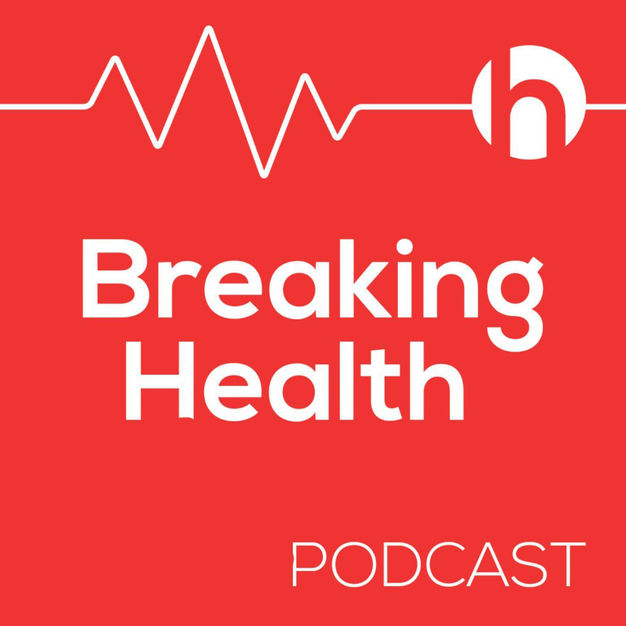 Breaking Health
Breaking Health
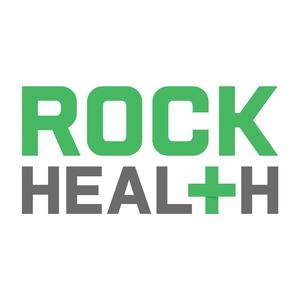 The Rock Health Podcast
The Rock Health Podcast
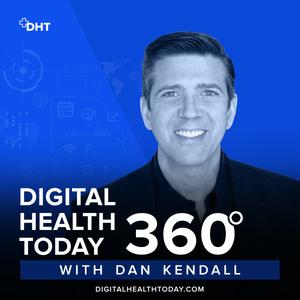 Digital Health Today 360 with Dan Kendall
Digital Health Today 360 with Dan Kendall
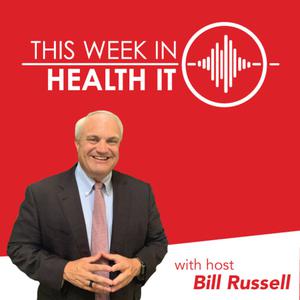 This Week in Health IT
This Week in Health IT
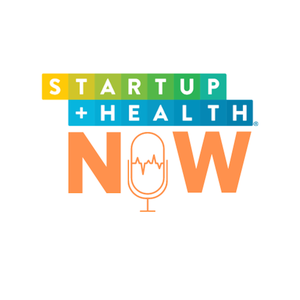 StartUp Health NOW Podcast
StartUp Health NOW Podcast
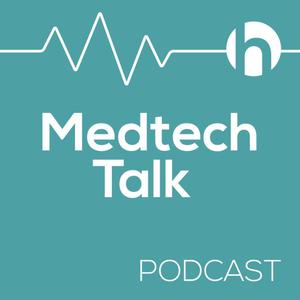 Medtech Talk
Medtech Talk